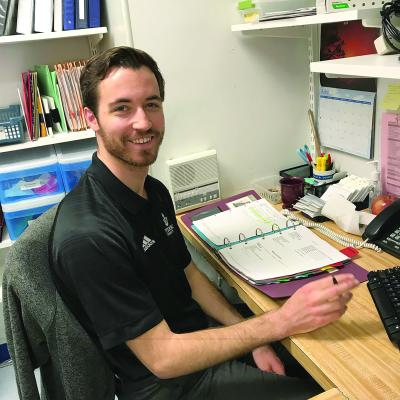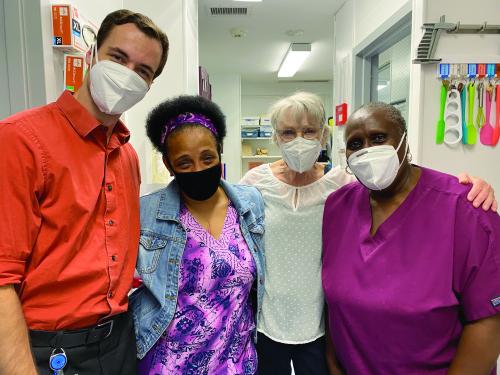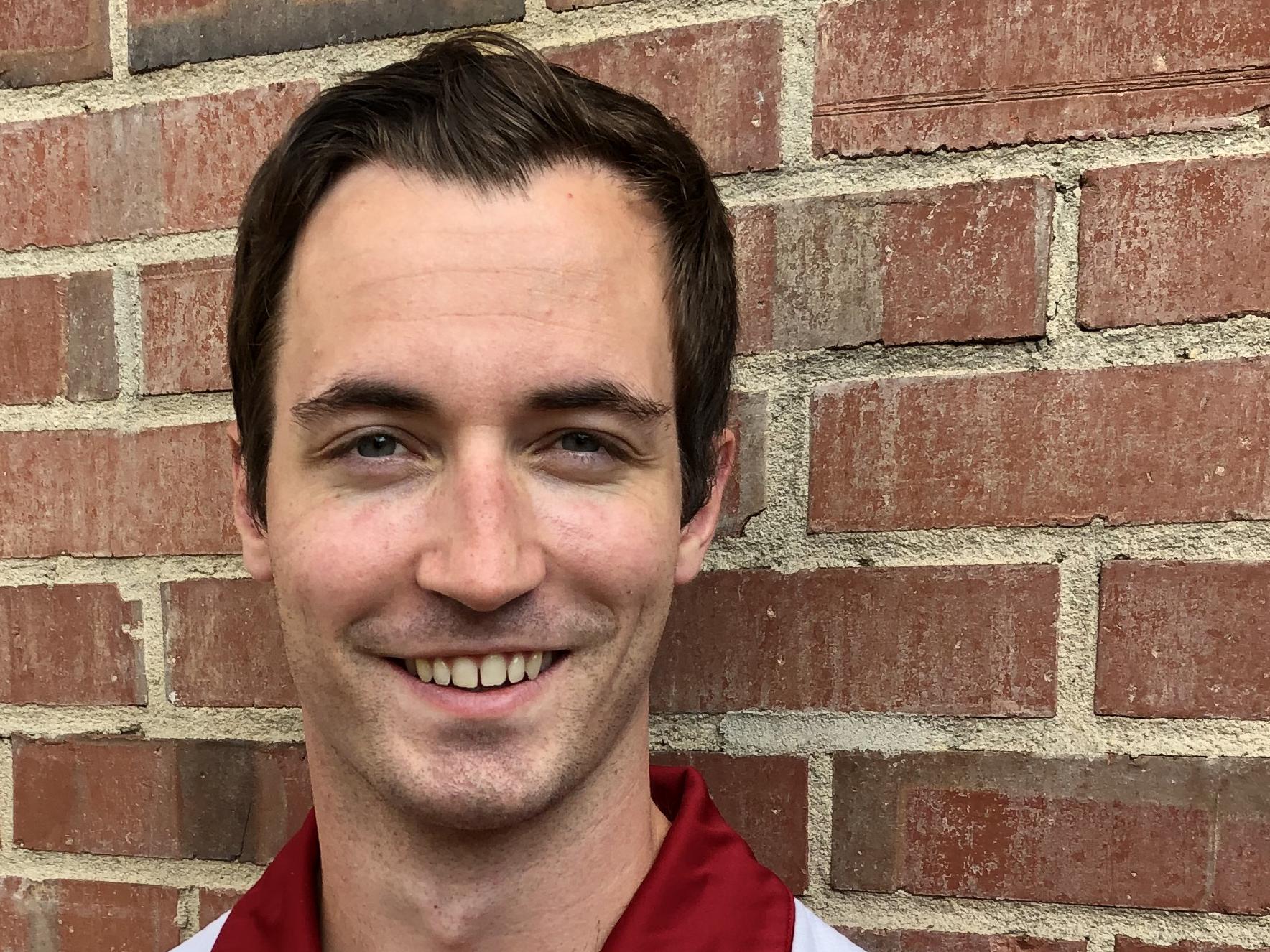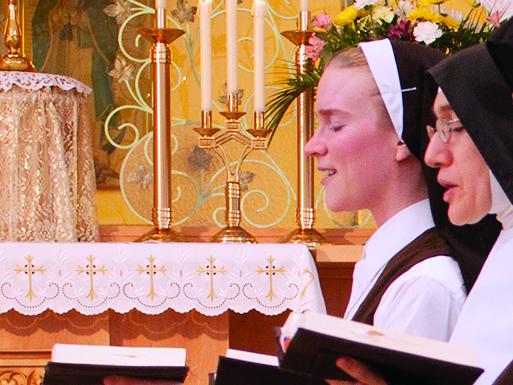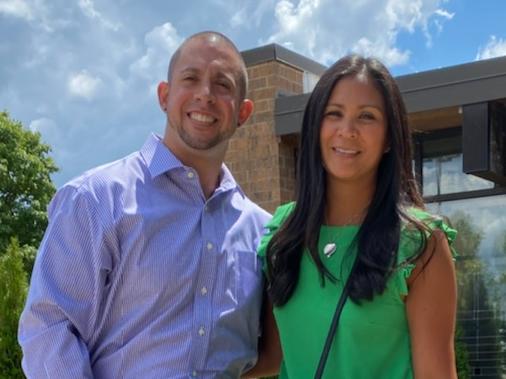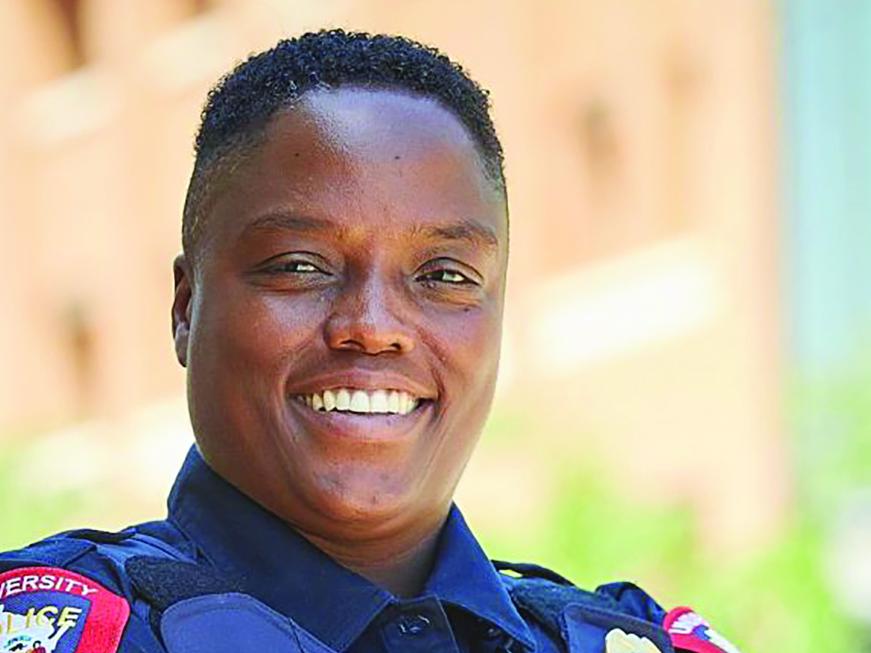Jedidiah Barton ’17, ’20 credits Viterbo University with shaping the trajectory of his life.
“I loved the community atmosphere at Viterbo,” said Barton. “I got to know so many incredible people and it was a safe space that allowed me to be myself. The VUSM courses, internships, research, and study abroad experiences all significantly impacted my career.”
During his time at Viterbo, Barton served as an RA, a tour guide, and even as Vic V-Hawk during campus visit events. He also worked as assistant house manager for the Fine Arts Center, one of his favorite roles as a student.
Following his graduation, Barton decided to complete a year-long volunteer program at Christ House in Washington, D.C. Christ House serves as a medical home for men who are experiencing homelessness. The patients are too sick to stay in a shelter setting or on the street, but not sick enough to be admitted to the hospital. On average patients will stay for about 30–45 days. Christ House was the first clinic of its kind in the U.S.
After the year of volunteering, Barton transitioned into the role of clinic manager at Christ House. During that time, he had the privilege of living on site in an intentional community with other staff and patients.
“I am proud of living in an intentional community,” said Barton. “The experience shaped my awareness, empathy, and goals. It came with challenges, but ultimately, I am a better person from those years.”
Barton then took on an expanded leadership role and transferred to another clinic within the larger health system called Unity Health Care. He served as assistant health center director at one of the Community Health Centers (CHCs). The center sees about 4,000 visits per month and offers primary care, specialty, dental, mental health, case management, and care coordination services.
“I believe in the mission and possibilities of CHCs and health care for the homeless,” said Barton. “It is very rewarding to contribute to the part of health care that cares for people who often get left out of the traditional health care system. I meet and get to know wonderful people in these roles—patients and staff. The CHCs draw many compassionate people who inspire me to keep moving forward.”
While the work is rewarding, Barton admits it is also challenging.
“Patients’ situations can be very complicated and can make accessing and providing care complex,” said Barton. “I try to remember that I cannot fix all the systemic problems, but our presence means a lot and is healing.”
Currently, Barton is starting a new position with the National Association of Community Health Centers (NACHC). He is excited to contribute to a team that expands, trains, advocates, and supports community-based health centers in the mission to care for underserved communities.
When asked about what the future holds, Barton said he no longer has a five-year plan.
“Grace works in our lives in mysterious ways, and we must be open to the people around us and to where we are being called,” said Barton. “For now, I will stay in the D.C. area and continue to work in this sector of health care.”

